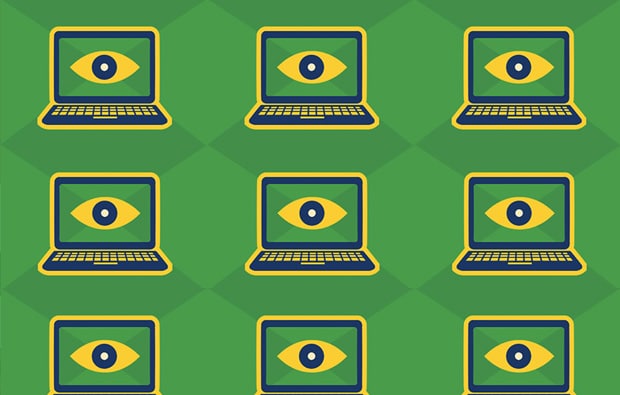The block is the third time a judge has ordered an internet shutdown in the past 7 months.
UPDATE: In a swift victory for free expression, the Supreme Tribunal of Brazil overturned the blocking order (Portuguese) on Tuesday, July 19. The upper court explained that the order was disproportionate, unconstitutional, harmed freedom of expression, and created legal uncertainty.
Rio de Janeiro, Brazil — Today a judge in Rio de Janeiro ordered the blocking of WhatsApp for the company’s failure to comply with a court order in a criminal investigation. The blocking of the popular social media and communications service would instantly impact millions of Brazilians. Ninety-three percent of Brazilians use WhatsApp, with Facebook in second place at 79 percent, according to a recent survey of 2,000 internet users in the country.
“Internet shutdowns don’t help restore order or protect rights,” said Deji Olukotun, Senior Global Advocacy Manager at Access Now. “This is a completely disproportionate response that harms people all over the country who rely on messaging services to communicate with their loved ones, document human rights abuses, or conduct business. On the eve of the Olympics — when the entire world will be watching Brazil — this sends the wrong signal about how the government will respect freedom of expression and digital rights. We call on authorities to immediately restore services to WhatsApp.”
“Encryption keeps us safe, and companies need encouragement — not penalties — for taking steps, like WhatsApp has, to implement end-to-end encryption that protects our data,” said Peter Micek, Global Policy and Legal Counsel at Access Now. “Brazil appears to be blocking the country’s most popular communications tool for not handing over data that the company does not have. As a result, Brazil’s reputation for freedom of expression suffers and its markets look increasingly unfriendly to innovative, privacy-enhancing toolmakers. Brazil should follow the spirit of its Marco Civil and promote universal internet access, at all times.”
According to the media site O Globo, judge Daniela Barbosa Assunção de Souza issued orders to the telecommunications companies Oi, Nextel, TIM, Vivo e Claro at 11:30 am local time and were mandated to immediately suspend service to WhatsApp. The companies were reportedly threatened with fines of R50,000 (approximately $15,000) per day.
This is the third time a judge ordered a shutdown in Brazil during the past 7 months. In December, a judge in a Sao Paulo court stated that WhatsApp had failed to comply with a July 2015 court order requesting message logs and information about a user for a pending criminal investigation. An appeals court judge overturned the order in about 12 hours, citing an inappropriate interpretation of the Marco Civil, Brazil’s landmark legislation protecting the open internet. Nevertheless WhatsApp was blocked yet again in May 2016 during a separate court case.
Earlier this month, the United Nations Human Rights Council passed a resolution that specifically condemns internet shutdowns. The Global Network Initiative also joined the Industry Dialogue — which together include Facebook, Google, Microsoft, AT&T and Vodafone — to speak out against shutdowns. This bold statement was swiftly followed by a statement from the GSMA, one of the world’s largest technology associations, that laid out strict standards for orders issued to telcos to restrict service.
The U.N. resolution follows a recent shutdown in Turkey surrounding bombing attacks, one in Bahrain around protests, and another in Algeria to prevent cheating on school exams. Notably, police in Ghana have backtracked from claims that they intend to block social media during upcoming elections in November 2016, after an uproar from civil society groups, politicians, and the U.N.
The #KeepitOn campaign is supported by nearly 90 organizations from 41 countries around the globe who are pushing back on internet shutdowns at every level, from governments to telcos to tech companies to everyday internet users. The full list of organizations is available on the campaign website: https://www.accessnow.org/keepiton/
Last year, Access Now recorded at least 15 internet shutdowns around the world, and has already recorded nearly 30 shutdowns in the 2016.
This blog post was updated to include the correct name of the presiding judge. It is Daniela Barbosa Assunção de Souza, not Daniel Barbosa.
